
Our Desert Adventures – A Tale of Two Treks
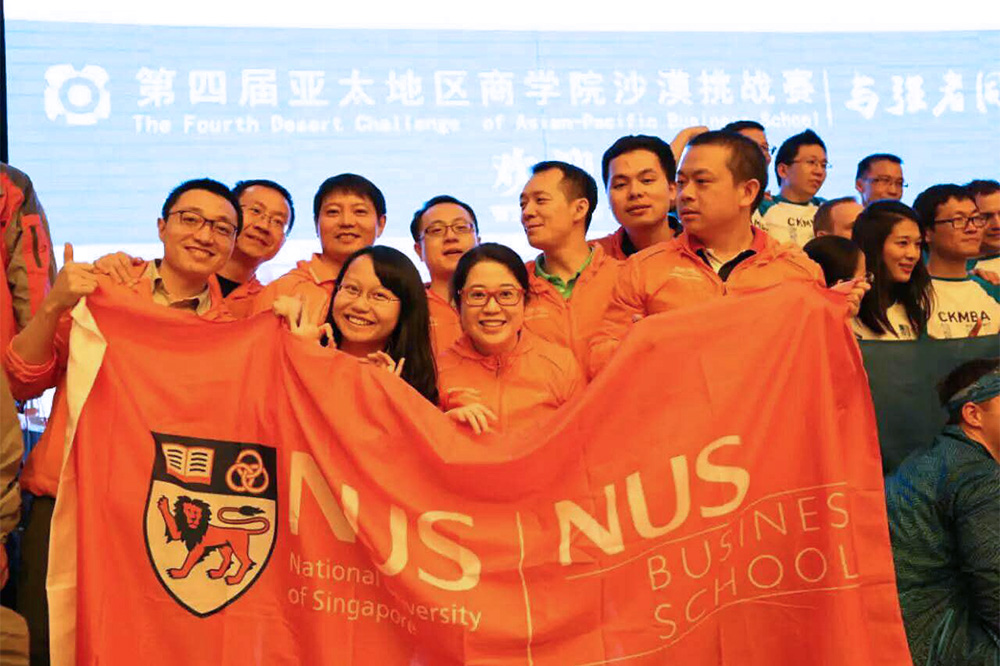
The Yashasai, short for the Asia-Pacific Business Schools Desert Adventure Challenge, invites MBA students from top business schools from the Asia-Pacific region. In 2015, our school participated in the race for the first time. Nine students from NUS joined MBA students from 52 schools from all over the world on a 60-km trek across the Tengri Desert, Mongolia, over the May holidays.
This is their photo-journey—in quotes and grunts—in between wiping off copious amounts of sweat and downing big gulps of water.
Three grueling days: We were out there for three days! On Day1, we walked 24km, on Day2 26km and finishing on Day3 with 10km.
The heat: The temperature was not high, but when the sun shone on us, we felt like dead fish. The sun also exhausted us very quickly… the sun is never your friend in the desert.
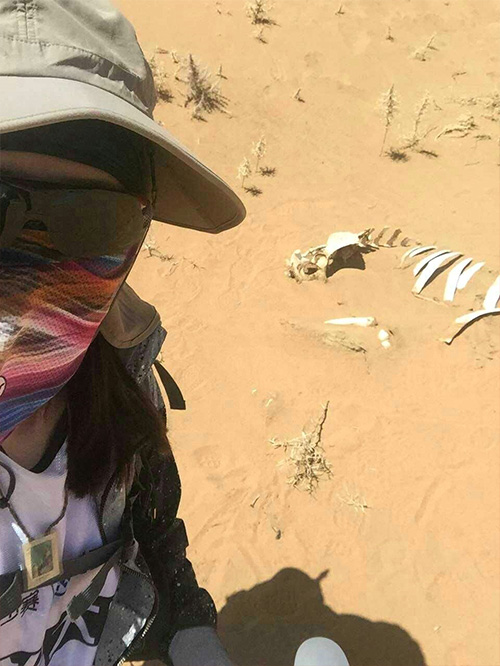
The cold: The nights were freezing cold… sleeping on open ground is not a joke when the temperature falls to below zero during the night.
The Wind: In the evening, the desert wind cuts like a knife. The best we could do was to huddle as close as we could to the camp fire.
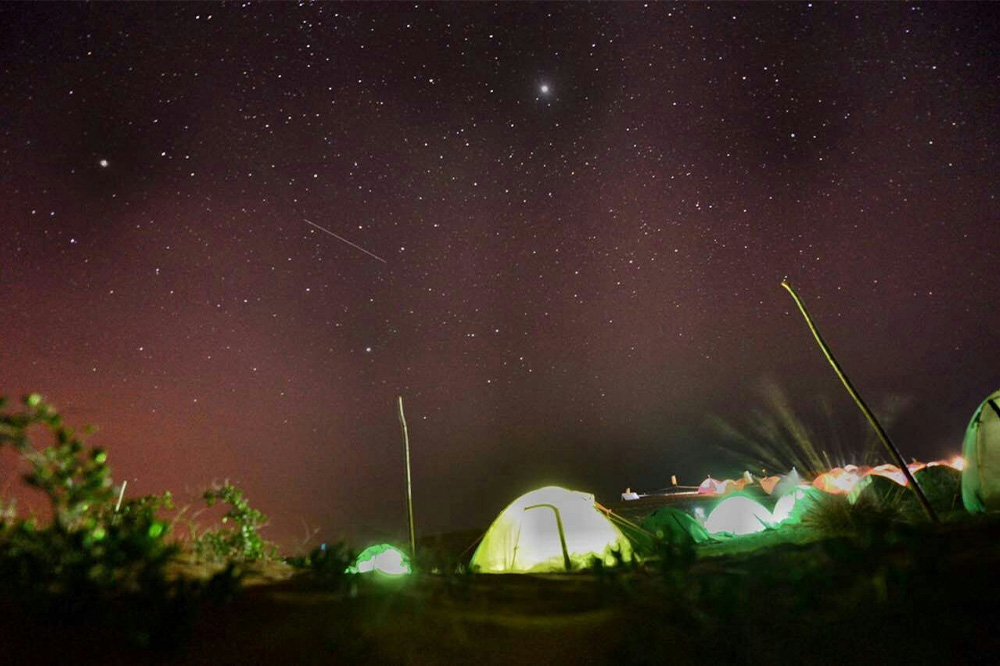
The hills: Who says the desert is flat? There were small hills, as high as 40 metres all the way across the desert. It felt like we were climbing, not hiking.
The ups and downs: Every step we took going downhill, our foot or even half a leg sank into the sand. Every step we took uphill, we slipped backwards half a step. Frustration was the only word to describe our state of mind. When we looked ahead, the endless desert created a sense of desperation. It was very depressing to see hills after hills all the way….

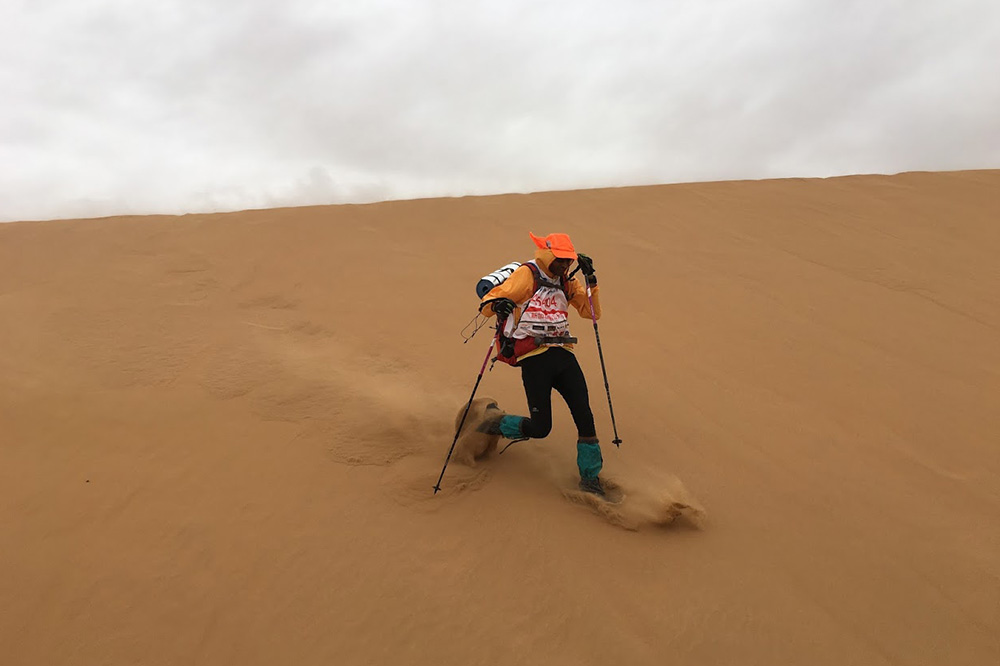
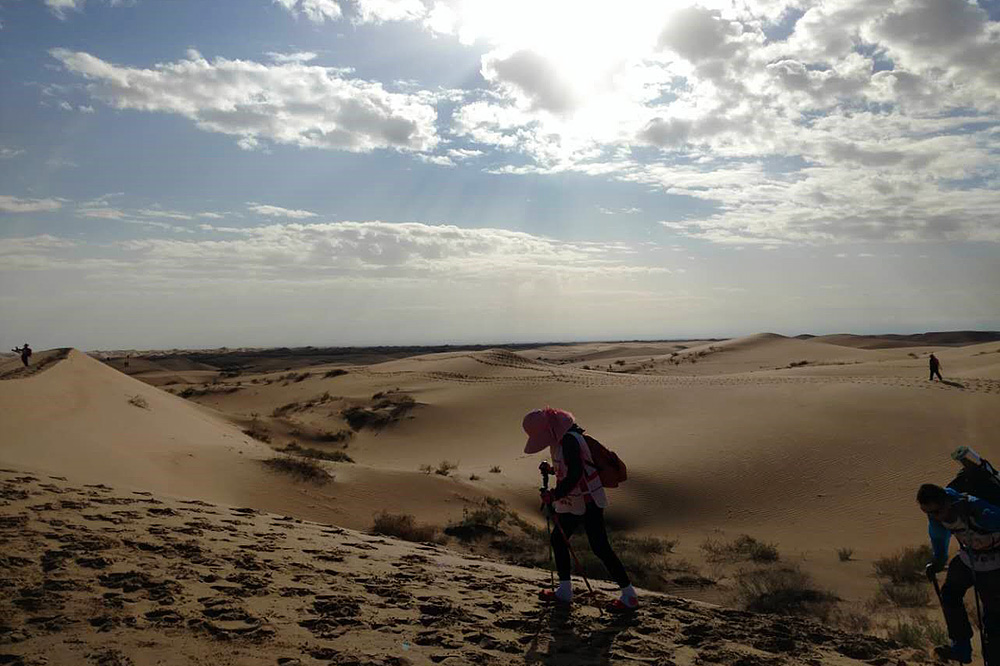
The pain: The wind blew sand into our hair, our eyes, our mouth and anywhere else it could lodge. The sand found its way into our shoes chafing our feet, making every next step tougher. Chafing, blisters, open cuts, muscle pain, cramps – you name it, we suffered it.


But The Best: Nothing is more exhilarating than the sense of accomplishment when we crossed the finishing line and stood in front of the camera with a medal in our hand.
And nothing is better than sharing the joy with your teammates and friends. Everything we had learnt in the MBA course had been tested here. “Step out of your comfort zone”, “the higher challenge, the higher support”, “teamwork” — all proved to be valuable practice principles in this race.
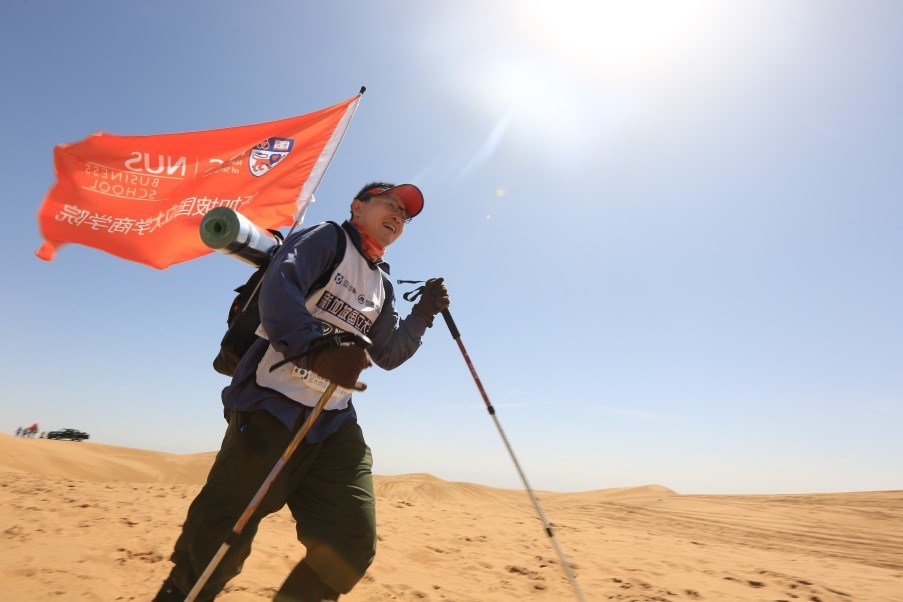
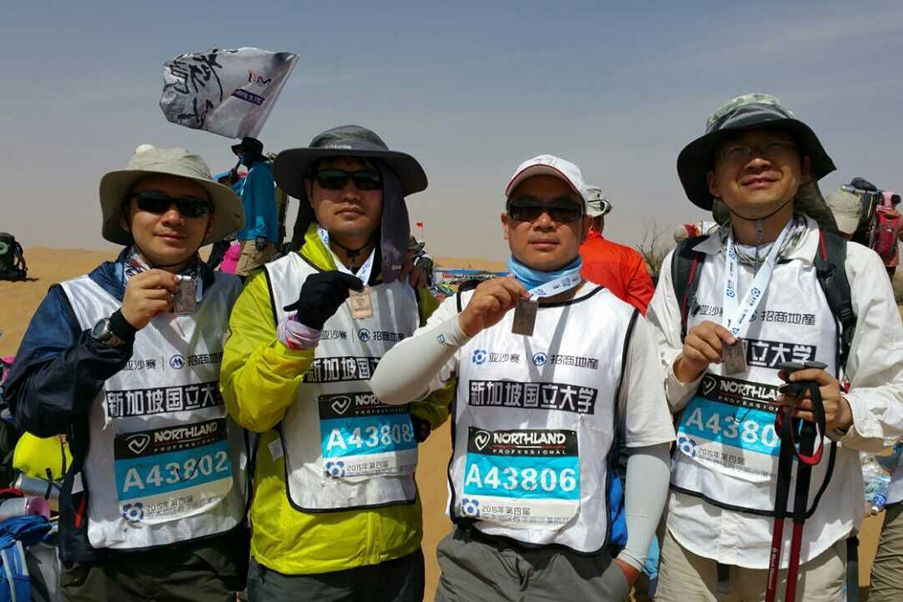
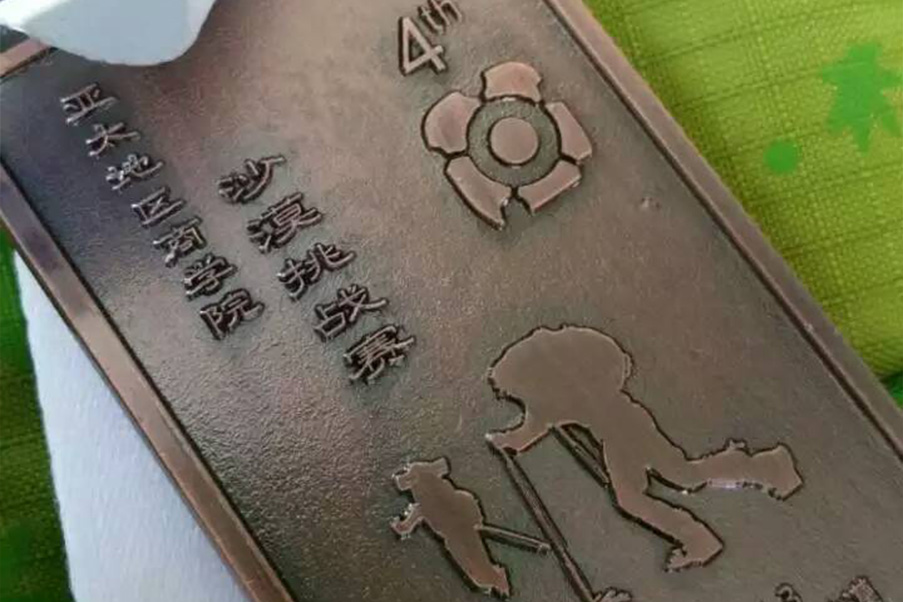
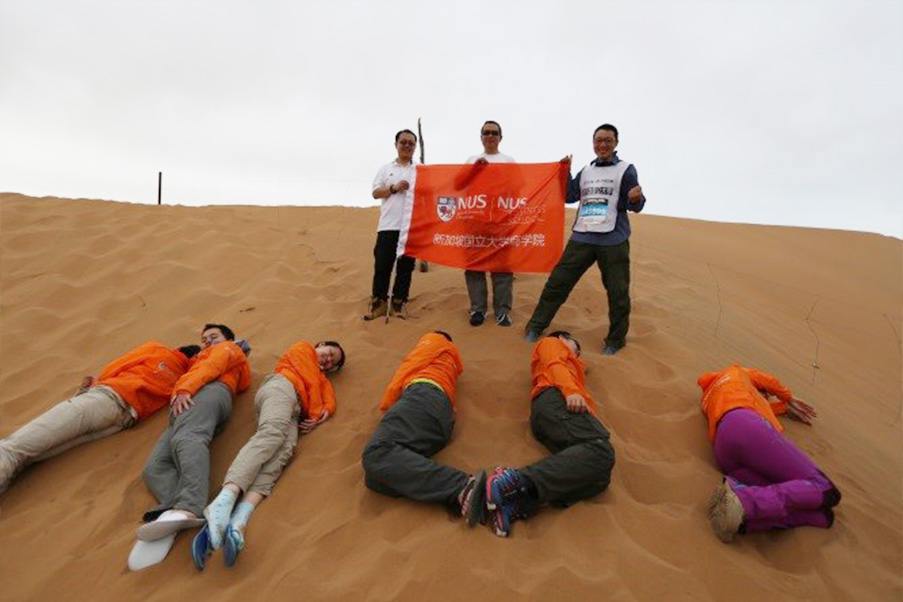
Our 2016 Team
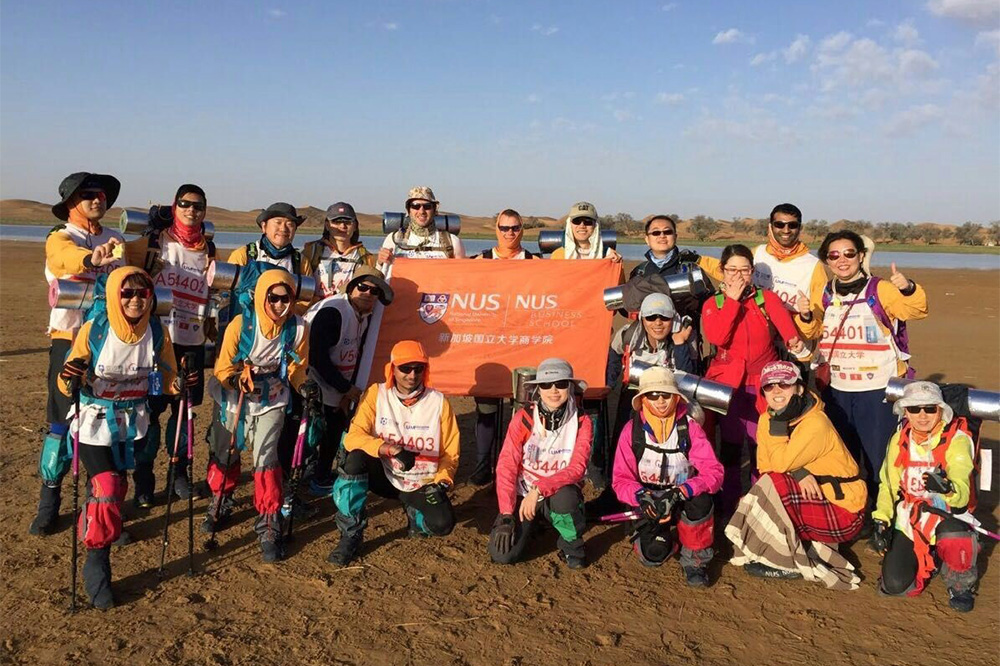
One year later, also over the May holidays, 18 students from NUS followed in those sandy footsteps. This time, they joined 1500 other MBA students from all over the world on a slightly longer 70-km trek. This year our team was also distinguished by being the most culturally diverse with members from Canada, China, Denmark, India, Malaysia, Singapore and South Korea.
We asked them how it went:
Zhang Haoze, China (The Veteran)
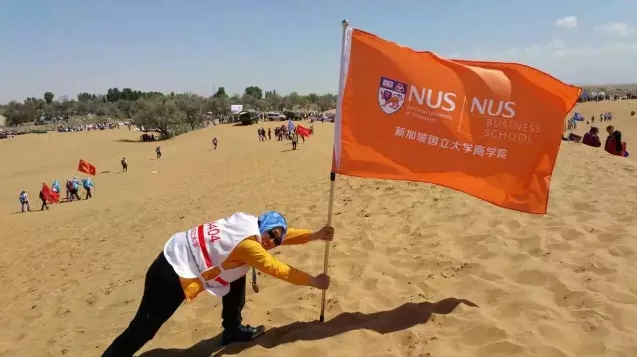
It was my second time. “Let’s double the awesomeness,” someone had said to me. I recalled the hardness of that first trek and did not intend to go again. But when I re-watched the video, I was filled again with the passion for challenge, the wonderful memories of our camaderie and fun together, and the breathtaking views of the desert. The second time around seemed tougher. The environment seemed harsher: it was cold, it rained, so we pushed harder – and achieved even better results than the year before!
Xiaolu Yang (Team Leader), China
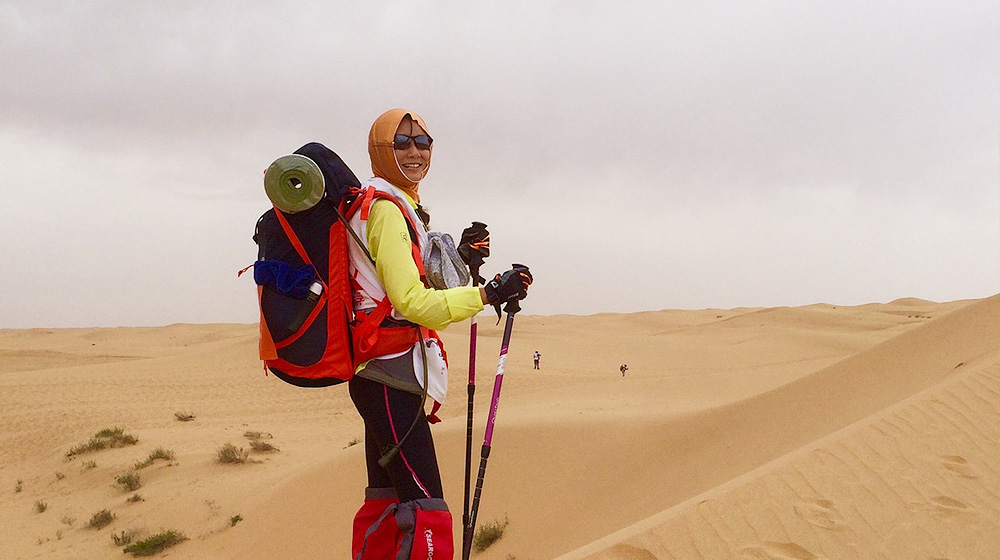
We expected the race to be challenging both physically and mentally but when we reached the desert, we realised we had underestimated it. As team leader, I was deeply touched by our NUS team. All the players encouraged each other and “fighting” became the theme with our journey. It was not only a battle between nature and human, but also a battle between the external self and the inner self. What surprised us was though the environment and physical condition were getting tougher every day, our team speed improved! On the last day, most of us were running towards the final point. I understand now that team support is the most powerful fuel ever.
Sean Bellamy, Canada (Vice Team Leader)
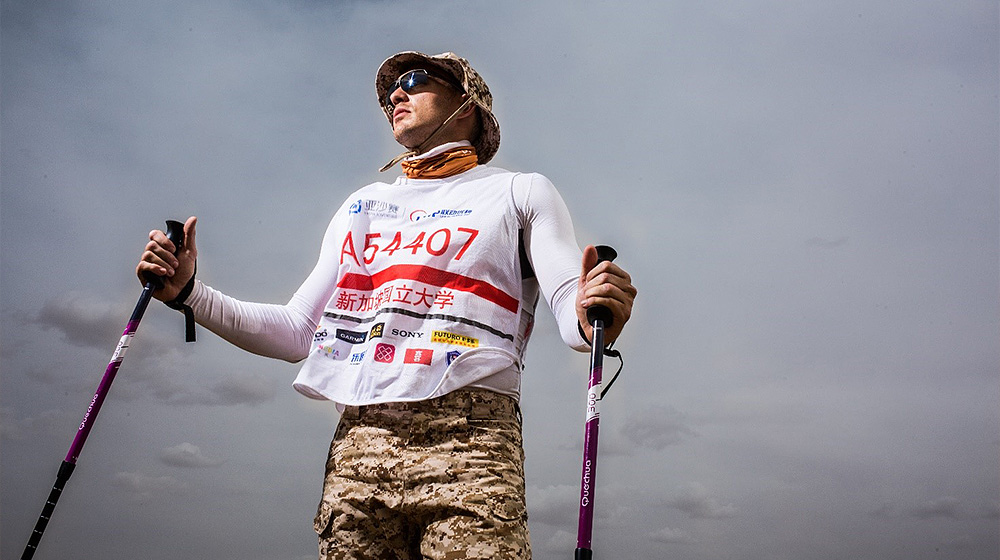
Participating in the desert challenge is one of the most memorable experiences of my MBA and one that I’ll cherish for the rest of my life. It was an opportunity to challenge myself and see what my mind and body were capable of under harsh conditions, as well as to develop my capacity to be a productive member of a high-performing team. Last but not least, I learnt a tremendous amount about the Chinese ethos, gaining particular admiration and respect for the competitive drive of the Chinese MBA students we competed against.
Thomas Nielsen, Denmark
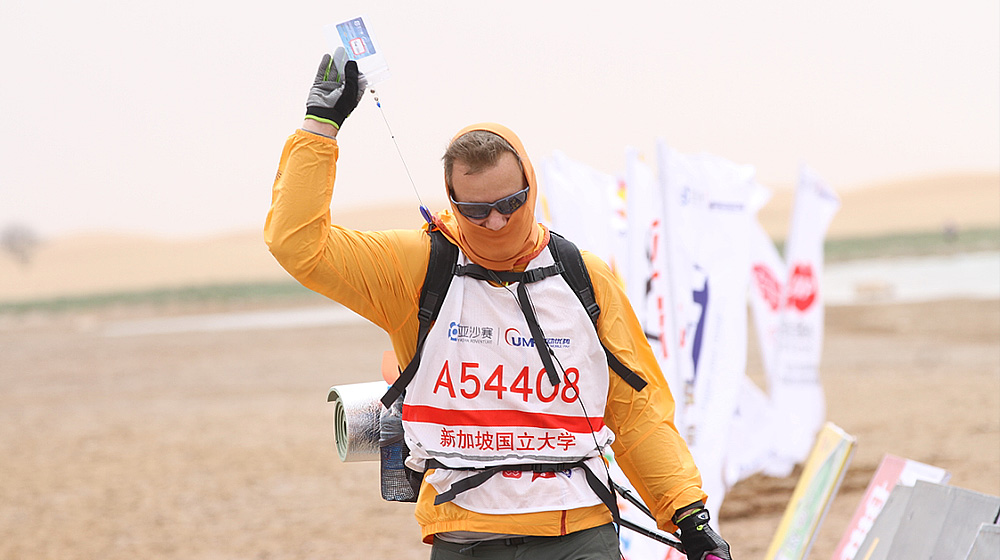
Being mentally prepared is just as important as being physically prepared for a journey like the desert race.
Hanzhen Jiang, China
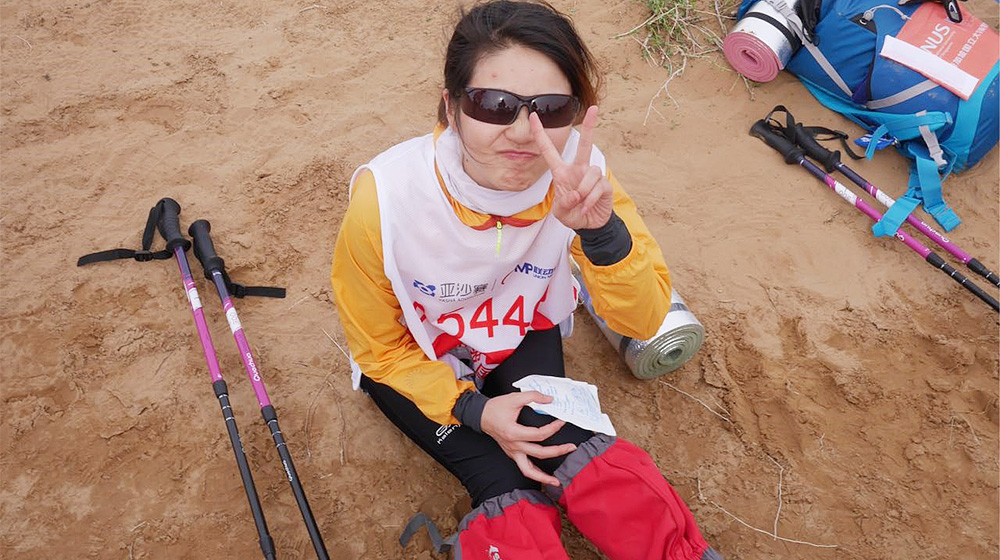
The most important learning from the Gobi desert race is that both the individual and the team can achieve their best when the team members inspire and support each other. I also learnt that everyone has the potential to be motivated by challenging experiences like the tough desert race. Thanks to the school and the team which give me such a great opportunity to know myself better. This experience will definitely be a milestone of my NUS MBA life.
Saurabh Sekhsaria, India
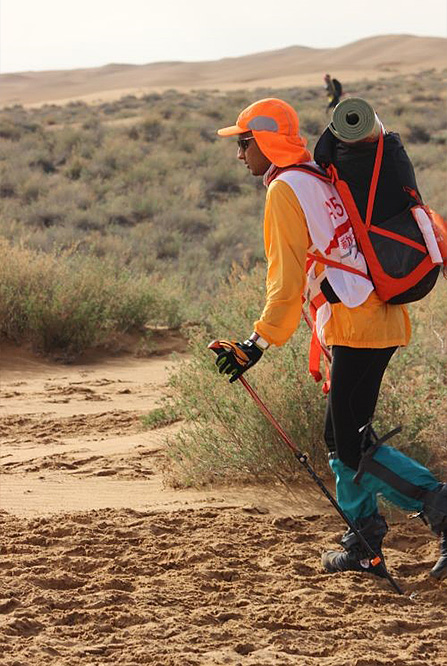
70 km in the grueling desert – what you will see is a true test of mind and character. Sometimes when your body gives up, your spirit takes over. This is what I experienced in the desert: the beauty of life and the majesty of the desert.
Kim Yeong Im, South Korea
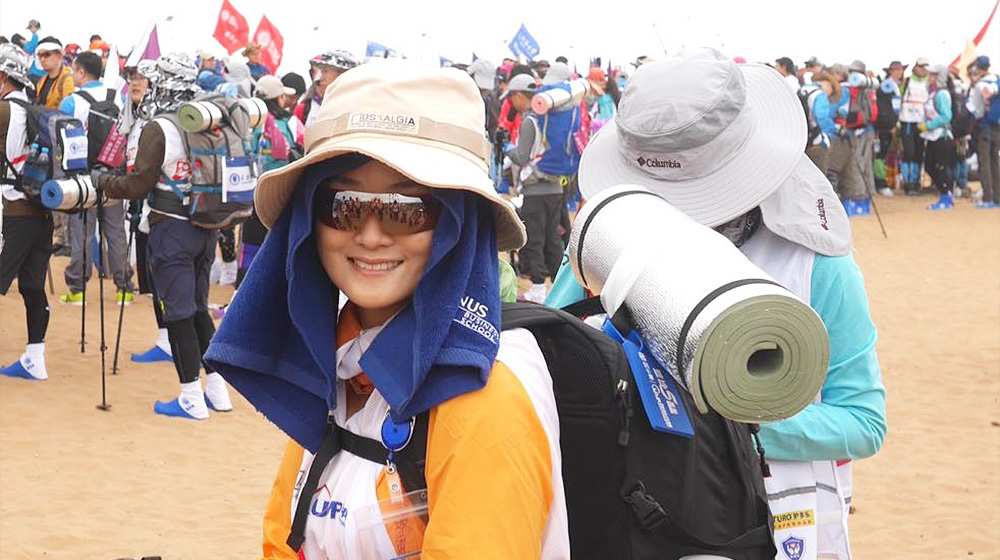
I learnt from this race how critical team spirit is in overcoming a difficult situation. Also, the learning from the nomadic life I led for those three days will fortify me to start a new journey after my MBA. All things considered, this event shed light on the phrase “success comes from working together efficiently, not as distinct individuals.”
Jeff Wang, China

3 days , 70km. The Gobi desert challenge was a team competition. It was also a journey of hundreds of sand hills, blistering white sunshine, heavy rains, with strong winds in the days and low low temperatures at nights—as in life , consistent forward motion beats occasional bursts. Average speed wins.
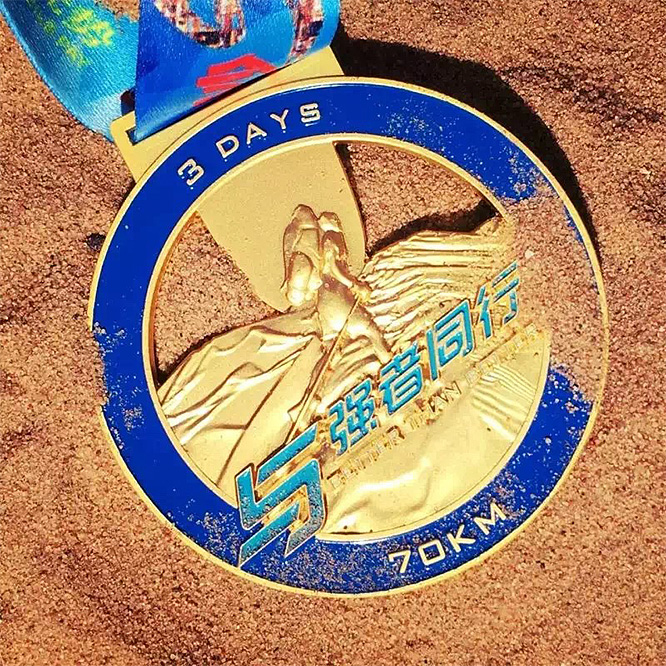
Kudos, Team 2015 and Team 2016. We are proud of you!
Read more about their adventures here on weixin:
Watch their training video:


